Last Updated on April 30, 2024
Very few directors have ever had the kind of run Rob Reiner did as a director between 1984 and 1992. Think about it. This is Spinal Tap, The Sure Thing, Stand By Me, The Princess Bride, When Harry Met Sally, Misery and A Few Good Men. Surely, that run alone would be enough to solidify him as one of the greatest Hollywood directors of all time? Those movies are so good it almost doesn’t matter how much money-losing crap he puts out now…and there is a lot of it… and North isn’t even the worst of it! So how did this man go from making a few great movies that defined and elevated our pop culture on so many different levels to suddenly pumping out nothing but heartless, soulless political flicks (did anyone see LBJ?) and rom-coms that are neither romantic nor comedic?
So, how did this jack of all genres become a master of none? Let’s find out: What Happened to…Rob Reiner?
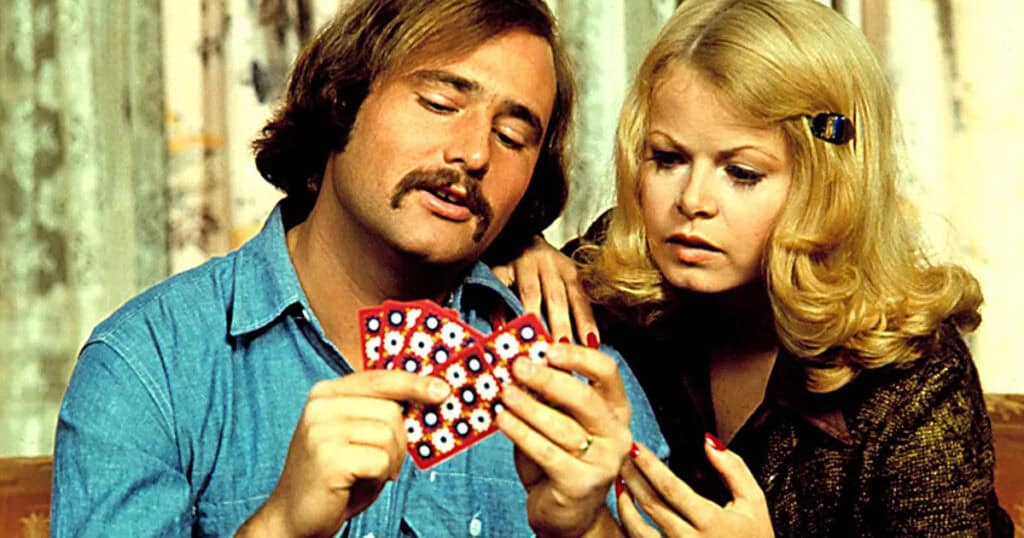
But to truly understand what happened to Rob Reiner, we must go back to the beginning. And the beginning began when he was born on March 6th, 1947, in New York City to the late, great Carl and Estelle Reiner, the former being one of the leading and most acclaimed names in comedy of his time. That’s right; Rob Reiner is a nepo baby…although it is funny to think of someone nearly in their ‘80s as one. With a key connection in the industry, Reiner got small bits in major shows like That Girl, Batman, The Partridge Family, and Gomer Pyle U.S.M.C. He made his first big screen appearance in 1967’s Enter Laughing…directed by his old man. One of his most key gigs in the decade was as a writer for comedy duo The Smothers Brothers’ variety show.
But it was on 1971’s groundbreaking sitcom All in the Family that Rob Reiner became a household name, playing Michael “Meathead” Stivic, the liberal (if sometimes empty) minded son-in-law to everybody’s favorite racist Archie Bunker. Meathead served as left-wing opposition to anything and everything Archie hilariously spit out, foreshadowing his real-life persona, when Meathead became a talking head on every political program from MSNBC to FOX NEWS. For the role, Reiner would win two Emmys. That same year, he married the late Penny Marshall, divorcing in 1981 before either one’s directing career took off. And while he would dabble in television a bit more by co-creating the short-lived sitcom The Super, it would be the big screen that would cement his name in American entertainment.
In 1984, Reiner created – alongside the likes of Christopher Guest, Michael McKean and Harry Shearer – This Is Spinal Tap, also playing the director-within-the-director Marty DiBergi. Although not the first comedy mockumentary, Spinal Tap reinvigorated the genre and still remains the pinnacle. And yet, instead of latching solely onto this style of comedy as his father did, he would next direct The Sure Thing (1985), which was still a comedy but seemed out of character but would be part of one of his favorite genres as he got older – the rom com. And even then, Reiner defied expectations yet again by helming the Stephen King adaptation Stand By Me (1986), proving he could do coming-of-age and drama. Through the story of Stand By Me, Reiner said he most identified with Gordie (also the narrator), Wil Wheaton’s character who has to make a name for himself amid the pressures of following behind a much-admired family member. But Reiner need not worry because he was well out of Carl’s shadow by this point, even earning his first Golden Globe nod for Best Director.
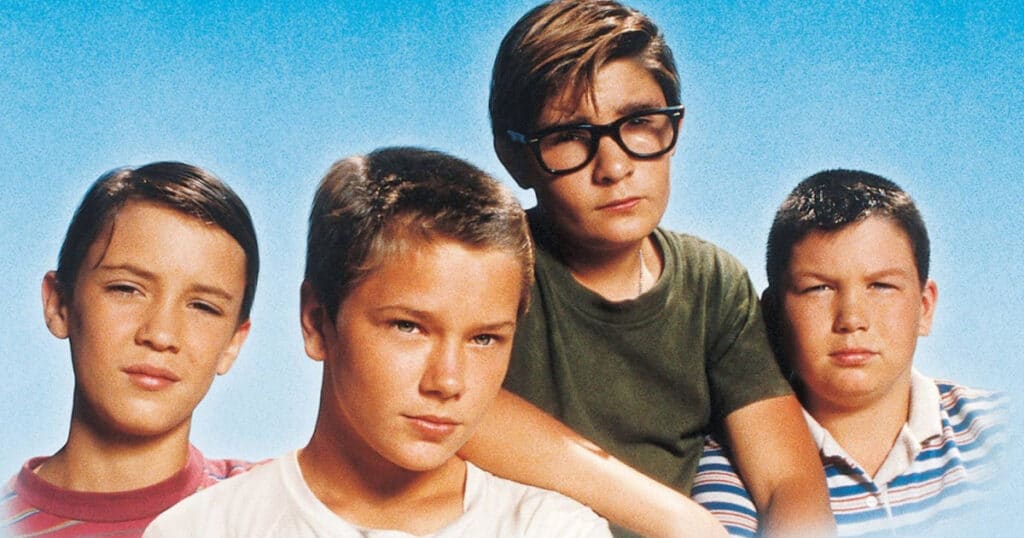
Two years later, he would establish Castle Rock Entertainment, so named after the town in Stand By Me. Rob Reiner ended the decade with what stand as two of the greatest romances ever put on film: 1987’s The Princess Bride and 1989’s When Harry Met Sally. Up to this point, Reiner had delivered exemplary modern examples of four different genres: mockumentary, rom-com, coming-of-age, and fantasy. He had crossed over, creating movies that virtually couldn’t offend anyone. And with Bride and Harry – which earned him another Golden Globe nod – he was undoubtedly one of the most recognizable directors on the scene. Then came mega hits Misery (1990) – winning an Oscar for Kathy Bates and A Few Good Men (1992) making him even more powerful. No genre was impossible for this man. It didn’t hurt that he would continue stepping in front of the camera as well throughout his entire career, with small roles in movies like Throw Momma from the Train (1987), Sleepless in Seattle (1993), Primary Colors (1998), and The Wolf of Wall Street (2013). When Harry Met Sally, however, had the distinction of being his biggest hit to date, taking in just under $100 million at the box office. Like The Princess Bride and 1995’s The American President, it was ranked as one of the 100 greatest romances by the American Film Institute.
The American President, as unremarkable as it is now, has a lot of importance to it. For one, it was the rebound he needed after 1994’s North, the movie that showed that despite how diverse his filmography had been, he couldn’t nail the family movie night comedy (yes, Ebert truly “hated hated hated hated hated” it). The American President also gave him yet another Golden Globe nod for Best Director, making him one of the most nominated without a win. But it also marked the point where he truly began to show his politics, which has defined – and maybe even marred – him since. With an Aaron Sorkin script, the movie undeniably takes a liberal viewpoint under the stances of gun control and environmental protection.
Reiner’s leftist positions have proven to be one of his most domineering personality traits, often at this point appearing on panels to spread his opinions all around the mainstream media. Consider 2024’s God & Country, a documentary he produced that warns of the “weaponization of racism” through the world of Christian nationalism and the Trump era. Such a stance makes him a champion of the far left, which made him all the more welcome in Hollywood but pinned him as a public enemy to the other side… like good ol’ Fox News, who said he deserves an “Oscar for Best Performance for Religiophobia” and latched onto Reiner’s former “Meathead” nickname. This left-leaning documentary, which featured the criticism of an entire religion, was (somehow!) a box office bomb. But those who have followed Reiner’s trajectory know it’s not solely because of the subject matter.
When you look at the numbers, Rob Reiner has only had one movie since 1995 that has taken in more than $50 million domestically: 2007’s The Bucket List, which had the benefit of allowing him to reunite with Jack Nicholson fifteen years after A Few Good Men and also work with Morgan Freeman. It’s harmless, ineffective and inoffensive, like every one of his post-A Few Good Men movies. Even when it seemed like he wanted another challenge (1996’s ok but less than stellar courtroom drama Ghosts of Mississippi), he couldn’t grasp his glory days. The early 1990s were his heyday, playing with genres he had yet to: the horror thriller Misery (1990), again re-teaming with Stephen King (Stand By Me), who named it one of the best adaptations of his works, and the aforementioned A Few Good Men (1992). By that point, it was his biggest box office hit and was his only film to cross $100 million domestically.
Now he’s lucky to cross $15 million – and only three in nearly as many decades have done so: The Bucket List, 1999’s lame romance The Story of Us ($27.1 million) and 2003’s even lamer romance Alex & Emma ($14.2 million), and the mild success of those films were not due to Reiner but its stars. It’s just been a thin string of unremarkable, forgettable, tepid movies that pad out the tail end of his filmography: 2010’s Flipped tried the coming-of-age romance blend but never cracked the top 20 with its $1.75 million; 2012’s The Magic of Belle Isle reunited him with Freeman but falsely advertised “magic”, its limited run of less than 10 theaters letting it barely hit $100,000; 2014’s And So It Goes with Michael Douglas and Diane Keaton had too limited of a demographic; 2015’s Being Charlie you probably forgot even existed; and 2005’s Rumor Has It…which was a weird some-what sequel to The Graduate but did nothing with the plot.
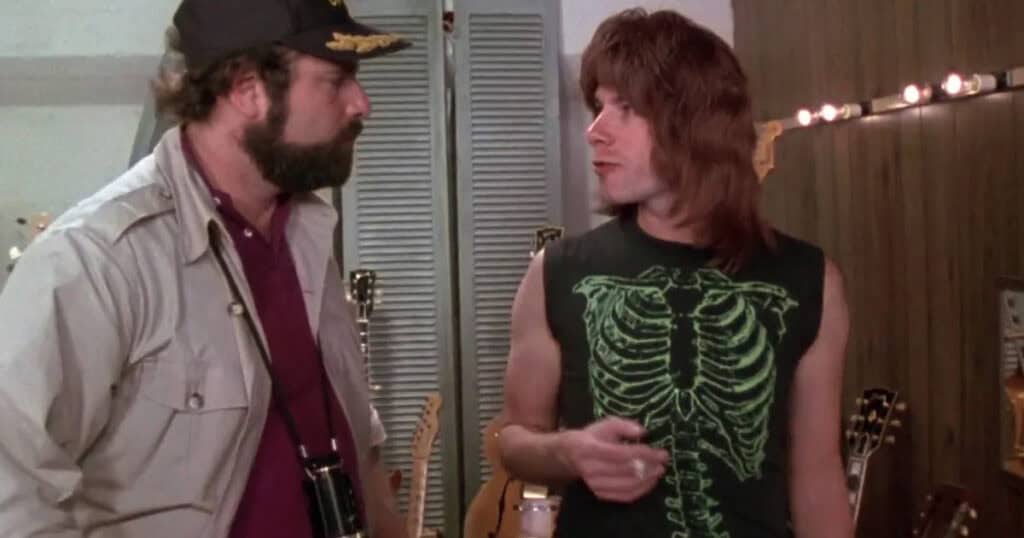
Lately, Mr. Reiner has been dedicating lots of his time to a podcast about JFK assassination conspiracy theory and even names names of 4 potential shooters. Rob Reiner has an extensive filmography, but he petered out, focusing less on challenging our views on the music industry, the film medium, relationships between men and women the fragility of youth, the corruption of our most respected systems, and the dangers of obsessive fans, than…fluff, filler and pushing his own political agenda. Recently, it was announced that they are making a sequel to Spinal Tap, which sounds like a great idea, but it probably isn’t. I am sure there is a ton of material about aging rock stars to play around with, but these types of sequels tend to let us all down and ruin the legacy.
Sometimes it best to leave the 80s in the 80s…especially when you are in your 80s. But I hope I am wrong and these elderly gentleman rock my socks off and make me laugh out loud. This meathead of a man became one of the most reliable and resourceful mid-tier directors of the ‘80s and early ‘90s. This Is Spinal Tap, Stand By Me, The Princess Bride, When Harry Met Sally, Misery, A Few Good Men: classics all! That is one of the hottest streak of hits for a filmmaker ever and each one more unique and different than the next. They have also crossed generations as prime examples of each of their genres. And it takes a whole lot more than just being a “meathead” to do that.







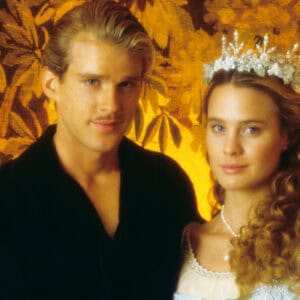
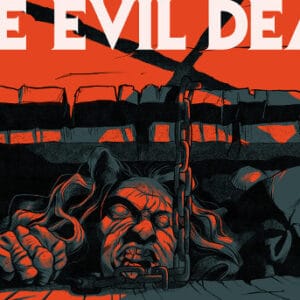











Follow the JOBLO MOVIE NETWORK
Follow us on YOUTUBE
Follow ARROW IN THE HEAD
Follow AITH on YOUTUBE